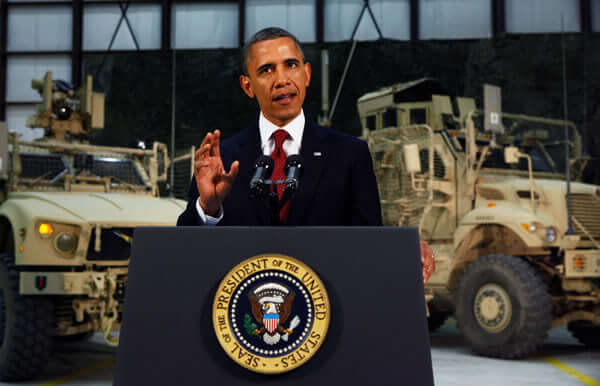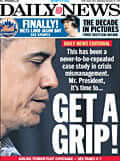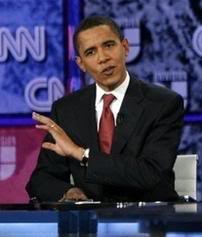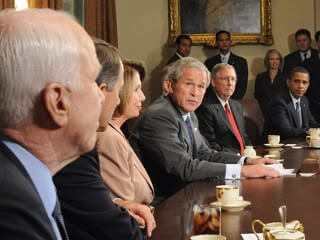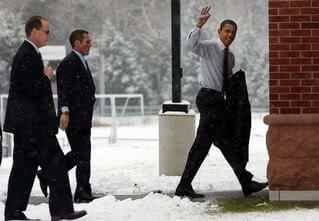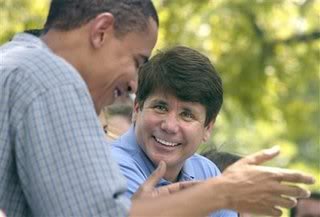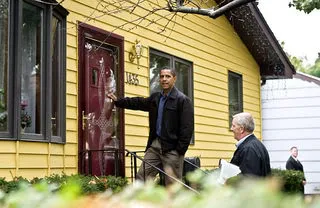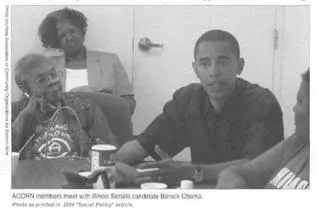One of the major reasons why Mitt Romney was able to make such rapid inroads against Barack Obama in their first debate, and why poll after poll shows that independent voters have turned decisively against Obama, is that Romney was able to lay bare the hollowness of Obama’s claims to bipartisanship. And given the Obama record of the past four years, there is no reason to believe he will ever learn his lesson.
For a reminder what real bipartisan leadership looks like, recall Bill Clinton. Clinton’s first two years in office were – aside from championing NAFTA and GATT with Republican support and passage of the Religious Freedom Restoration Act – a series of lurches to the left, some successful (he added to George H.W. Bush’s tax hikes), some unsuccessful (Congress blocked his proposals for universal health care and a BTU tax), and just a few ending in compromise (Don’t Ask, Don’t Tell). Voters responded by running Democrats, in a landslide, out of their 40-year House majority, their Senate majority and a bevy of state governorships to boot.
Clinton, ever the survivor, read the writing on the wall. He and GOP House Speaker Newt Gingrich (and Senate leader Bob Dole) fought each other hammer and tongs with every weapon in the book and some new ones to boot, but they also did business with each other, cutting deals that garnered Republican votes and a Clinton signature. (Just one Republican legislative priority, the Private Securities Litigation Reform Act, passed over Clinton’s veto). The voters, seeing that Clinton was steering a course more in line with the Congress they had elected, rewarded Clinton with a second term.
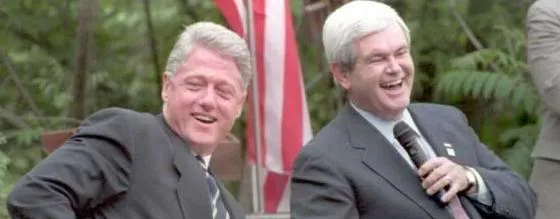
How did he do it? Partly charm and public pressure, of course, but Clinton also did the two most important things in any negotiation: he gave Republicans things they wanted, and didn’t demand Republicans vote for things they couldn’t support. Let’s review several of the accomplishments, large and small, of the the 104th Congress, 1995-96:
-After the bruising 1995 government shutdown, Clinton and the GOP agreed to budgets that restrained spending enough to balance the budget without further tax increases. The spending cuts would leave many conservatives unimpressed, and gushing tax revenues from the boom in technology and free trade would help the budget reach balance (as would a capital gains tax cut signed in Clinton’s second term), but the point is that Republicans got at least some of what they wanted (restraining spending as a percent of GDP from over 22% in Fiscal Year 1992 to 19.6% – under 20% for the first time since the Nixon years – in Fiscal Year 1997) and didn’t have to violate pledges to resist tax hikes.
–The Paperwork Reduction Act of 1995 sought to reduce paperwork requirements in federal regulation, a goal that satisfied pro-market conservatives as well as Vice President Gore’s efforts at the time to streamline government operations.
–The Helms-Burton Act extended and expanded sanctions on Cuba, a conservative foreign policy priority championed by Jesse Helms.
-The Telecommunications Act of 1996 included broadcast and cable deregulatory provisions; the Act was complex and would remain controversial, but it was a significant piece of legislation that gave something to everyone.
-The Line Item Veto Act, although later struck down by the Supreme Court, was a longstanding conservative priority and part of the Contract with America. Of course, it gave Clinton something too – more presidential power.
-The Contract with America had proposed a Taking Back Our Streets Act anti-crime agenda, reflecting decades of conservative agitation for stronger law enforcement and longer prison terms. Many of its provisions ended up in subsequent enactments including the Antiterrorism and Effective Death Penalty Act of 1996, which among other things placed new restrictions on abuses of the habeas corpus process, strengthened the federal death penalty, and imposed immigration restrictions on various types of offenders.
–The Congressional Review Act, signed by Clinton in March 1996, gave Congress greater power to reject overbearing regulations passed by administrative agencies, again a conservative priority.
-The 1996 “Taxpayer Bill of Rights 2” would offer a variety of efforts at procedural protections for targets of the IRS, always a conservative bugaboo.
-The Small Business Job Protection Act of 1996, sponsored by Bill Archer, would – among other things – expand 401(k)s for small businesses and use tax credits to promote adoption. It also included something of value to liberals (an increase in the minimum wage) that conservatives traditionally object to but are willing to treat as a bargaining chip rather than a poison pill.
-The Health Insurance Portability and Accountability Act of 1996 accomplished a number of the goals of the failed HillaryCare health insurance proposal, but in more incremental fashion that many Republicans could swallow, such as protecting continuing coverage for people with pre-existing conditions who already have health insurance and then change jobs to an employer with a different plan.

–Welfare reform in the form of the Personal Responsibility and Work Opportunity Act, a conservative priority ever since Ronald Reagan’s reforms to California’s welfare system in the early 1970s and a cornerstone of the Contract with America, was passed and signed by Clinton in late August 1996 (during the week between the Republican and Democratic conventions) following a drawn-out battle that had featured two Clinton vetos. It remains the only major example of a federal entitlement program undergoing significant reform.
-The Domestic Violence Offender Gun Ban, a/k/a the Lautenberg Amendment, incorporated a variety of provisions designed to prevent people convicted of crimes of domestic violence from owning guns. Broad-ranging gun control was out of the question for a GOP Congress elected with major NRA support in revolt over the “assault weapons ban,” but a bill narrowly targeted at a class of criminals was able to attract enough Republican support to pass.
-The Bill Emerson Good Samaritan Food Donation Act of 1996 limited liability for charitable donors of food. A small bill, but one that combined two Republican passions: tort reform and private charity.
-The Defense of Marriage Act, signed into law by Clinton on September 21, 1996 with overwhelming bipartisan support in both Houses of Congress, gave states protection against being compelled to accept out-of-state same-sex marriages in other states; “Section 3 of DOMA codifies the non-recognition of same-sex marriages for all federal purposes, including insurance benefits for government employees, Social Security survivors’ benefits, and the filing of joint tax returns.” DOMA was and is, obviously, a social conservative priority.
-The Illegal Immigration Reform and Immigrant Responsibility Act of 1996, signed by Clinton on September 30, 1996, imposed a variety of measures to tighten enforcement of the immigration laws, mainly by strengthening deportation provisions and expanding the ability to deport those convicted of crimes and keep out of the country those already deported. IIRIRA may not have satisfied border hawks, but like a number of Clinton-era initiatives it built bridges between moderates in both parties by targeting a narrow class of criminals.
–“The Regulatory Accounting Act, passed in the final weeks of the 104th Congress, requires the executive branch to produce an annual report for Congress estimating the total benefits and costs of all federal regulations.” This, too, was a longstanding conservative reform proposal. Also passing at the end was the Small Business Regulatory Enforcement Fairness Act, a Kit Bond-backed bill to ease regulatory burdens on small business, a perennial Republican priority.
Another Contract with America promise, the $500 per child tax credit, would be signed into law by Clinton in 1997.
Whether conservatives got a good deal out of all this, whether they chose wisely in striking each of these deals, and whether these bills worked in practice as promised is a whole separate issue. The point is, there’s a lot on that list that gave conservatives and Republicans things they wanted and had been agitating for over the prior two decades, and nothing on the list that compelled Republican legislators to go home to their constituents having broken any major promise or violated any core principle.


